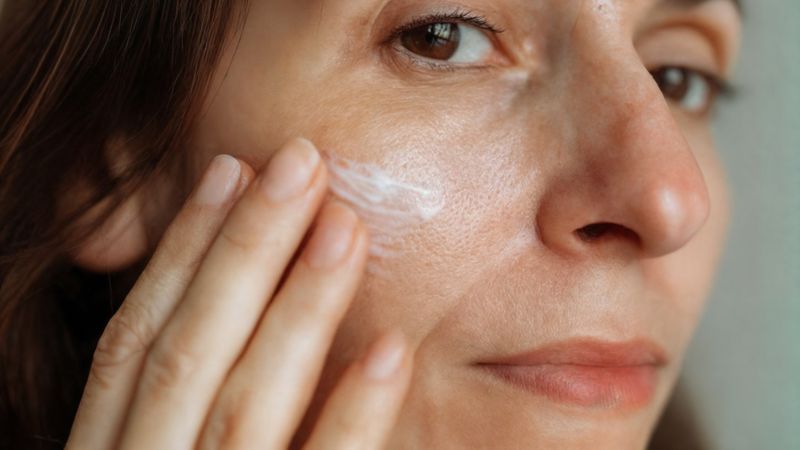Can a healthy gut improve immunity and mood? Avea Biomind says yes

Have you ever wondered why sometimes your gut seems to have a mind of its own? You’re not alone—actually, the connection between our digestive tract and our overall well-being is at the forefront of modern health research. Scientists are increasingly convinced that a healthy gut microbiome can influence not just digestion, but also immune response, mood, and even our ability to handle stress. Of course, there’s still plenty we don’t know, and new studies keep rolling in every day—but there’s a whole lot we do know already. One product that aims to harness these insights is Avea Biomind, an innovative probiotic supplement featuring Duocap technology, designed to protect essential probiotics and other active ingredients on their journey through the digestive system. Here’s the casual-but-scientific breakdown of why a balanced gut flora might be one of the best gifts you can give your body (and maybe your brain, too), especially if you’re curious about how to improve gut health.
The unsung hero: your gut microbiome
Picture your gut microbiome as a bustling city, teeming with trillions of tiny inhabitants—bacteria, yeasts, and other microorganisms—that all need to work in harmony for this grand metropolis to thrive. When these residents are living their best life, they help break down food, synthesize vitamins, and maintain a robust immune system.
But—and here’s the part that raises eyebrows—your gut microbiome also appears to chat with your brain in ways we’re only beginning to understand. Some researchers suggest that our gut bacteria produce and influence neurotransmitters like serotonin, known for its role in mood regulation. This might help explain why people sometimes refer to the gut as our “second brain.” Fascinating, right? On the flip side, an imbalance in gut flora, also called dysbiosis, can potentially lead to a cascade of not-so-pleasant outcomes: from digestive woes (bloating, constipation) to more systemic effects like fatigue or heightened stress responses.
So yes, it sounds amazing, but keep that grain of healthy skepticism alive. The gut-brain connection is one of the hottest topics in contemporary research, and there’s still quite a bit to unpack regarding the underlying mechanisms. Nonetheless, the general consensus is that a healthy gut is, at the very least, supportive of overall health.
Probiotics: more than a trend?
Chances are you’ve bumped into probiotics before—maybe in yogurt commercials or while strolling down the supplement aisle. Probiotics are the so-called “friendly bacteria” that may support a balanced gut ecosystem when consumed in sufficient amounts. The enthusiasm is partly warranted: robust clinical trials suggest that probiotics can help reduce antibiotic-associated diarrhea, support immune function, and even affect mood parameters in some cases.
But let’s not forget: not all probiotic supplements are created equal. Different strains (like Lactobacillus acidophilus or Bifidobacterium bifidum) behave differently, and the quantity of live bacteria that survive the journey through the acidic environment of the stomach can vary dramatically between formulas. This is exactly why the delivery system—how those friendly microbes make it to your gut—matters a whole lot.
The Duocap Technology: like a space shuttle for your bacteria
This is where Avea Biomind sneaks in, quietly and with purpose. It employs something called Duocap Technology, and the concept is actually pretty clever. Think of it like a capsule within a capsule—a double-layered approach designed to protect sensitive ingredients from stomach acid so they can be released more strategically down the line.
- Outer Capsule: Dissolves in the acidic environment of your stomach, releasing certain nutrients like Panax ginseng. The outer capsule dissolves in the acidic environment, allowing ginseng to get to work. Ginseng can potentially boost immune cells in the gut environment and modulate stress responses.
- Inner Capsule: Stays sealed until it enters the more alkaline environment of your ileum (the last portion of your small intestine). That’s where the probiotic strains are finally set free, significantly improving their odds of survival—and if there’s one thing you want your probiotic to do, it’s survive. The second capsule bides its time until it reaches the more alkaline territory of the ileum, where it releases those specialized bacterial strains—plus B6 and B12—in a zone that favors their absorption.
No formula can guarantee a 100% safe arrival of every single microbe, but Duocap is definitely a solid innovation aimed at improving the odds. If you’ve ever taken a probiotic and wondered if they’re actually surviving the stomach’s harsh environment, you’ll see the logic here. This kind of multi-phased approach is designed to maximize the potential benefits by ensuring the right ingredients reach the right places.
Beyond the bacteria: ginseng, B-Vitamins, and more
It’s easy to get stuck on probiotics, but Avea Biomind also includes other components that aim to complement gut health and beyond:
- Panax Ginseng (7% Ginsenosides): Ginseng is sometimes called an adaptogen, which basically means it might help the body handle stress more gracefully. Some studies suggest ginseng can support certain aspects of immune function, including gut-specific immunity. It’s not a magic bullet, of course—adaptogens often need time and consistent use to show meaningful effects—but the premise is intriguing.
- Vitamin B6 (Pyridoxal-5-Phosphate) & Vitamin B12 (Methylcobalamin): The B vitamins are pretty much the backstage crew for countless processes in the body, from energy metabolism to nervous system function. Conveniently, your ileum is a prime absorption site for these vitamins. So the idea is that by using Duocap, you’re not just delivering probiotics there; you’re also releasing B vitamins in a locale where they can be taken up effectively.
- Multiple Probiotic Strains (e.g., Lactobacillus, Bifidobacterium): Different strains can serve different functions. For instance, some Lactobacillus species might help regulate digestion, while certain Bifidobacteria species could play a role in controlling inflammation. And yes, the synergy between these strains is still a big question in research, but the multi-strain approach is popular among professionals aiming for a broader range of benefits.
By combining these elements in a single product, the hope is to foster an environment in which beneficial bacteria can flourish, support immune functions (both in the gut and systemically), and potentially give you a subtle lift in your daily energy and stress resilience.
Teaming up with the specialists: Nordbiotic
One fascinating aspect is Avea Biomind’s collaboration with Nordbiotic, a company specializing in probiotic research. Working with experts who develop exclusive bacterial strains presumably ensures that you’re getting well-researched probiotic lineages, rather than random, off-the-shelf options. Of course, as a critical thinker, you might wonder: “Does that automatically mean better results?” It’s a valid question. The short answer: specialized research can boost quality and targeted function, but individual responses can vary widely. We still rely on ongoing clinical studies to refine these formulations.
Healthy gut, healthy mind?
Alright, so we’ve established that a well-balanced gut can do a lot for you. But can it really sharpen your mental focus or help you stay calmer under pressure? There’s a line of thought suggesting that lowering inflammation in the gut can reduce overall inflammatory signals that might affect the brain. The so-called gut-brain axis is a complex communication network—kind of like a phone line—where your gut and your brain exchange chemical “messages” regularly.
It’s not that taking a probiotic supplement will magically solve all mental health challenges, obviously. However, a healthier gut environment may bolster the production of neurotransmitters and reduce inflammatory processes that can impact cognitive function and mood. If you pair a product like Avea Biomind (with ginseng, probiotics, and B vitamins) with a balanced diet, regular exercise, and quality sleep, you might be creating an environment in which your mind and body can better cope with stressors. Nothing is foolproof, but the cumulative evidence suggests real potential for synergy.
Practical tips for supporting a healthy gut
Before we get too starry-eyed about any supplement, it’s crucial to remember that a supplement is just that—an addition to an already supportive lifestyle. Here are a few practical pointers:
- Eat Fiber-Rich Foods: Whole grains, legumes, fruits, vegetables—these are the staples that feed beneficial gut bacteria.
- Stay Hydrated: Adequate water intake keeps everything flowing smoothly. Plus, it helps maintain a healthy gut lining.
- Diversify Your Plate: Different microbes prefer different nutrients, so a varied diet helps foster a more diverse microbiome.
- Manage Stress: Chronic stress can alter gut motility and microbial composition. Techniques like yoga, meditation, or even a brisk walk can help.
- Consider a Targeted Supplement: If you suspect your gut flora needs additional support (perhaps after antibiotic use or during periods of high stress), exploring a multi-faceted product—like Avea Biomind—might be a worthwhile experiment.
The subtle art of skepticism
It’s essential to stay curious and critical: while there’s a growing body of evidence supporting the benefits of probiotics, adaptogens, and targeted vitamins, individual results vary. There isn’t a universal fix for everyone’s health concerns, and each new clinical trial might add a layer of nuance. Keep an open mind, but also keep asking questions about dosing, quality control, and specific strains.
Final takeaways
The combination of carefully selected probiotic strains, Panax ginseng, and B vitamins — delivered via Duocap Technology — certainly ticks a lot of boxes if you’re looking to support a healthy gut environment. It seems particularly appealing for anyone who’s serious about giving those microbes a fighting chance against the onslaught of modern-day stressors.
At the end of the day, you can’t rely solely on one capsule to keep you in perfect health. But, if you’re already focusing on eating nutrient-dense foods, staying active, getting enough sleep, and managing stress, then adding a thoughtful supplement to the mix might provide that extra nudge. The hype around gut flora is real, yet we should remain open to updates and new discoveries. After all, science is an ever-evolving adventure—one that we, and our tiny bacterial allies, are on together.
If you’re curious, check out Avea Biomind’s information to see how it aligns with your personal health goals. In the grand scheme of things, the state of your gut can genuinely be a game-changer—and it’s nice to see technology stepping up to help these beneficial bacteria do their job.
References
Author: Volker Blasek
Volker Blasek is a technical editor with a background in horticulture, fueled by a volunteer year on an organic farm. His passion for nature and conservation, paired with his expertise in psychology and science, shapes his engaging and thoroughly researched content. As a medical editor, he has authored over 3,000 articles on topics such as nutrition, diseases, symptoms, naturalopathy, and home remedies, delivering insightful and accessible reporting for a wide range of audiences.




